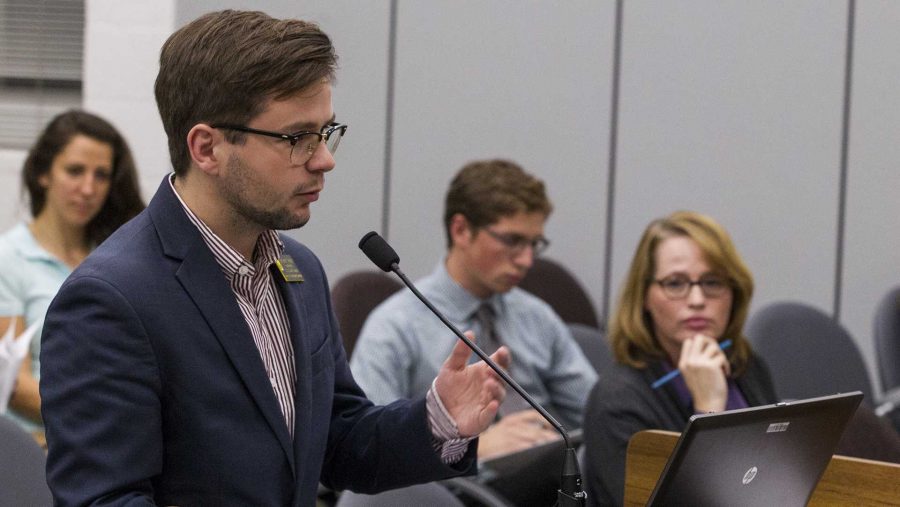The Iowa City City Council deferred a vote Tuesday night to amend the Housing Code to establish a rental-permit cap and “to strengthen the minimum requirements for rental housing.”
The city has a regulation for housing that restricts occupancy levels based on whether the residents are a family or separate members.
In April, the Iowa Legislature adopted a law that prohibits enforcing this occupancy based on family relationships.
This amendment to code would “mitigate the impact of increased occupancy levels,” according to the City Council meeting packet.
The amendment would enact several changes to the code, including placing a rental cap on areas of Iowa City in which no new rental permits could be issued.
RELATED: Iowa City works on providing affordable housing
The amendment also creates a requirement for bedroom sizes and shared living space, requires interconnected smoke alarms and deadbolt locks on all dwelling unit doors, requires rental permits for owner-occupied dwellings with more than one tenant, enhances rental-permit-sanction windows from 12 months to 24 months, and puts in place a spacing requirement between rental properties.
The plan was presented by Stan Laverman, the senior housing inspector. The rental cap was suggested at 35 percent of a particular district.
“We looked at our neighborhoods, and we looked at those percentages, and we took an educated guess on what we consider healthy, vibrant neighborhoods,” Laverman said.
The rental cap would allow landlords who currently have permits to maintain them, even in districts that are currently over the rental cap.
University of Iowa student Austin Wu expressed concerns regarding the cap.
“In the long run, it would place an artificial cap on rental supply, which would effectively create a price floor,” he said.
Wu also said it could negatively affect walkability for Iowa City because overspill of renters into lower neighborhoods could potentially increase the number of students who drive to campus. He also said he thought the call for a rental cap might blame students for something they weren’t accountable for.
“I think the proposal for the rental cap sometimes unnecessarily blames students for things that are not necessarily their fault,” Wu said. “Often, things like maintenance or snow removal or lawn care, in their lease is listed as the responsibility of the property-management company, not the tenants, so oftentimes these complaints aren’t to be blamed on the tenants.”
RELATED: City Council passes rent abatement ordinance
Ben Nelson, the UI Student Government City Council liaison, commended the Housing-Code changes for increasing quality of life with student housing, but urged the council to break the changes into separate items to pass individually.
He also questioned the rental cap as it is proposed.
“I think it’s important to take a step back and ask why are wanting these rental-permit caps,” he said.



